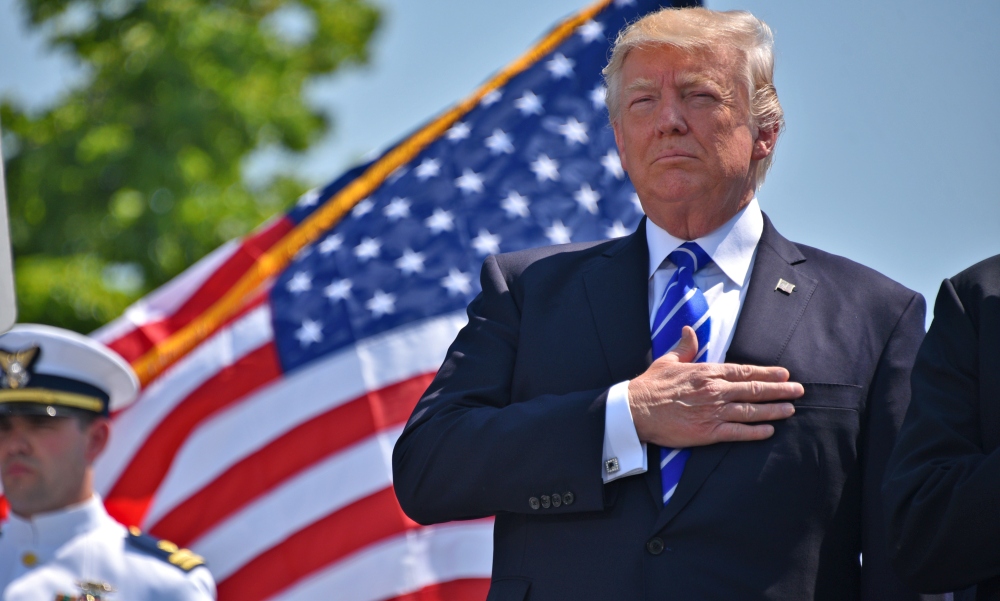In a bold move against “Big Tech,” former U.S. president Donald Trump is suing social media organizations that banned him earlier this year. The class action lawsuit, led by Trump himself, hopes to address the increasing impunity exhibited by these tech companies; there are multiple avenues of coverage that all predict different outcomes, the most likely of which is stronger regulation for tech companies.
Part of the larger issue is that the word “tech” is inherently misleading in the context of companies like Facebook, Twitter, and YouTube – all of which are named in Trump’s lawsuit. While others waffled on understanding the difference between tech and media, we have insisted that one can only be categorized as a “technology” company if its primary product is hardware or software; “media” companies involve the dissemination of content using a digital platform.
But companies that might otherwise qualify as solely media-based have been blurring the lines for years, leading to a dearth of understanding regarding their very categorization – and how to enforce the laws that accompany that denomination.
Classifying companies like Facebook and Twitter as tech companies, therefore, is problematic in that the regulation often applied to media companies cannot be applied to them, despite a clear need for regulatory consistency.
In any event, the lawsuit itself alleges that these companies formed a monolithic stance, one whose “status thus rises beyond that of a private company to that of a state actor,” subjecting the companies in question to legal scrutiny under the first amendment – a right that Trump’s attorneys argue was violated when the former president was banned from using these sites.
There are several trains of thought regarding this lawsuit, the majority of which follow the expected party lines; however, one consistent player is Section 230, which is legislation that prevents social media companies from being held accountable for the content that their users create, publish, or share.
Right-leaning news outlets are focusing on possible infringement of free speech and the increasing prominence social media companies play in dictating real-world outcomes, with Fox News quoting Mark Meckler (former interim Parler CEO) as saying the lawsuit could “break new ground.” Trump himself pointed to Twitter’s continued entertainment of violent foreign “dictators” in his absence, alleging support for the idea that conservatives are being censored on social media.
Trump is also quoted as referring to social media as “the de facto censorship arm of the U.S. government” in light of companies like Facebook and Twitter enforcing policies against misinformation, largely at the behest of left-leaning government officials.
This aligns with the “state actor theory” in which social media companies are held with the same regard as government agencies in recognition of the power they wield.
A social media company’s status as a private entity, Trump argues, does not protect it from liability in an ecosystem in which these companies have as much influence as they do, arguing instead for the abolishing of Section 230.
Conservative news outlets are predominantly optimistic about the lawsuit’s success, with sources such as Meckler pointing out that this constitutes “a developing area of the law” that could result in a crackdown on Section 230 – something that would change the way social media companies operate for the foreseeable future.
Left-leaning news outlets are more focused on the flaws in the lawsuit, however, with The Daily Beast asserting that “constitutional law experts almost laughed at the legal arguments presented in the suits.”
“The argument here that Facebook should be considered a state actor is not at all persuasive,” said Jameel Jaffer, executive director of the Knight First Amendment Institute at Columbia University.
Jaffer also points out inconsistencies in the lawsuit’s motivations: “It’s also difficult to square the arguments in the lawsuit with President Trump’s actions in office. The complaint argues that legislators coerced Facebook into censoring speech, but no government actor engaged in this kind of coercion more brazenly than Trump himself.”
These outlets similarly reference Facebook, YouTube, and Twitter cooperating with the CDC to prevent the spread of misinformation regarding COVID-19 – something that Trump’s legal team has cited as evidence that social media companies were colluding with Democrats.
Left-leaning sources acknowledge that the lawsuit could be damaging should it succeed in repealing or altering the parameters around Section 230, but they primarily view this lawsuit as more of a fundraising attempt than a legitimate gripe with the law.
“They know that they’re going to lose and this is a fundraising, publicity stunt that maybe lets them take a section 230 case up the appellate ladder,” says Ari Cohn, a lawyer with TechFreedom.
Cohn also asserted that the argument about Facebook as a state actor is old news, and other sources explained that the lawsuit is most likely a distraction from other stories more than anything else.
There are some fringe takes regarding this lawsuit as well, with Daily Wire calling the lawsuit a “publicity stunt” that is “dead on arrival” due to misinterpretations of Section 230 and the inaccurate logic that led up to the portrayal of Facebook as a “state actor”.
Similarly, centrist news org, The Hill, emphasizes that “the case is frivolous, and… will almost certainly be dismissed in court because private companies are not subject to comply with the First Amendment, which upends the basis of the complaint’s argument.”
Whether or not this lawsuit finds traction, the most reasonable outcome to expect is a closer look at how social media companies are classified, what their role is in public dealings, and which laws pertain to them while they occupy the liminal space between technology and media dissemination.
“Tech” companies have operated without proper regulation for far too long, and while the context here is divisive, the idea of holding these companies accountable to consistent legal expectations should not be.
Jack Lloyd has a BA in Creative Writing from Forest Grove's Pacific University; he spends his writing days using his degree to pursue semicolons, freelance writing and editing, oxford commas, and enough coffee to kill a bear. His infatuation with rain is matched only by his dry sense of humor.











































Pingback: Why Trump's lawsuit against social media still matters